#Courage Under Fire
Text
Somewhere outside Needles, California, Christmas 1995, Ben Affleck's car phone started chirping. Damon was taking it easy in the passenger seat — still recovering from dropping 40 pounds for his junkie scenes in Courage Under Fire. Affleck, who dreads flying and frequently drives cross-country, was all poise when the voice on the other end said, "You have a meeting with Mel Gibson . . . in New York . . . in two days."
They spent much of the next 48 hours pounding coffee and quoting lines from Mad Max to each other as the Nevada desert faded into the Manhattan skyline. "We got to Miramax's offices just before our lunch," says Damon.
— From Matt Damon and Ben Affleck's interview with Premiere (January 1998).
#ben affleck#matt damon#matt & ben#on living together#good will hunting#courage under fire#mad max#1995#1998#quote#originals#premiere
12 notes
·
View notes
Text
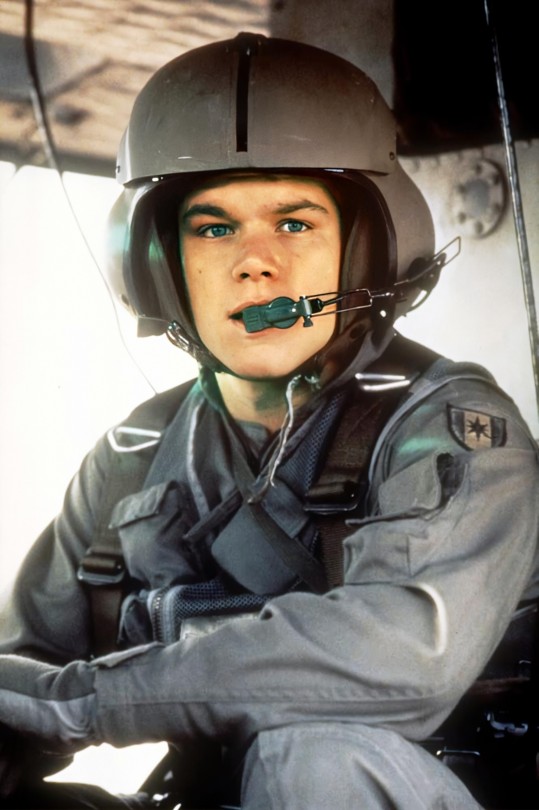
Courage Under Fire (1996)
#1996#film#movie#aviation#military#Courage Under Fire#Matt Damon#Specialist Andrew Ilario#Andrew Ilario#Meg Ryan#Captain Karen Emma Walden#Karen Emma Walden#Denzel Washington#Lieutenant Colonel Nathaniel Serling#Nathaniel Serling#Lou Diamond Phillips#Staff Sergeant John Monfriez#John Monfriez#Tim Guinee#Warrant Officer One A. Rady#One A. Rady#Medal Of Honor#Operation Desert Storm#Desert Storm#Gulf War#Kuwait#Iraq#Bell#UH-1#Iroquois
12 notes
·
View notes
Text
I’ve been meaning to upload these but I simply forgot 😬.
Courage under fire - [1996] this is such a good movie! Lou as monfriez







#courage under fire#young lou diamond phillips#lou diamond phillips#1996#army#soldiers#actor#hollywood actor#90s#war movies#military#drama#war drama#classic movies
4 notes
·
View notes
Photo
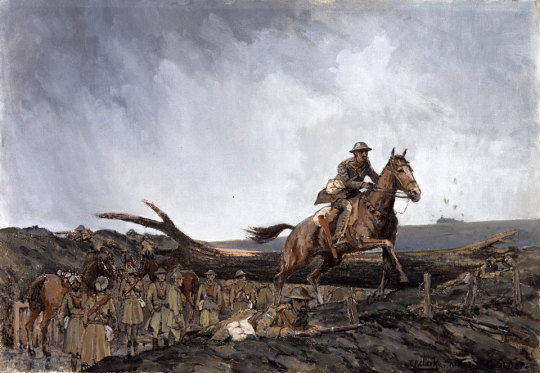
Ανδρείη τας άτας μικράς έρδει.*
- Democritus
Courage makes misfortunes seem small.*
After the German advance on 30 November 1917 during the Battle of Cambrai, the British counter-attacked on 1 December. 4th Battalion Grenadier Guards attempted to recapture Gonnelieu, just south of the Péronne-Cambrai road, south-west of Bonavis, which had fallen to the enemy the preceding day. During this action, Acting Captain G H T Paton commanded the support company. The attack failed but it prevented the Germans from advancing out of Gonnelieu. Meanwhile to the south, the British mounted several cavalry attacks south of Gauche Wood towards Villers-Guislain which had also been captured by the Germans the day before. One of these involved 2nd Lancers (Gardner’s Horse), 5th (Mhow) Cavalry Brigade.
They came under very heavy fire and were soon pinned down. Lance Dafadar Gobind Singh volunteered three times for carrying the messages over open ground under constant fire.First, he carried a report on the position to Brigade HQ and brought back the reply. He then carried another report back to the HQ but was refused permission to return to the front. His regiment eventually completed a successful withdrawal after nightfall.
Gobind Singh received the Victoria Cross, the highest British and Commonwealth award for gallantry in the face of the enemy.
#singh#gobind singh#cambrai#battle of cambrai#first world war#war#gallantry#courage#bravery#courage under fire#british indian army#british army#soldier#2nd lancers#victoria cross#democritus#greek#classical
32 notes
·
View notes
Text

6 notes
·
View notes
Text




First time watching this movie. I'm starting to like it...
3 notes
·
View notes
Text

#courage under fire#movies#denzel washington#meg ryan#lou diamond phillips#illustration#vintage art#alternative movie posters
4 notes
·
View notes
Photo

20 notes
·
View notes
Text
News report: "Pearl Jam guitarist falls off stage ..."
Me: NOOOOOO!!!! MIKE!!! Poor baby!
News report: "But continues playing guitar solo without missing a single note."
Me: THAT'S MY BOY!!!
1 note
·
View note
Text
Review: On His Watch
Synopsis:
Two thrilling stories from the True Blue K-9 Unit series.
Courage Under Fire by Sharon Dunn-A deadly stalker has rookie K-9 officer Lani Branson in his crosshairs, and he won’t stop until she’s dead. Her boss, K-9 police chief Noah Jameson, won’t let that happen on his watch, especially since there’s a chance this is the same person who killed his brother. Can they unmask the murderer…
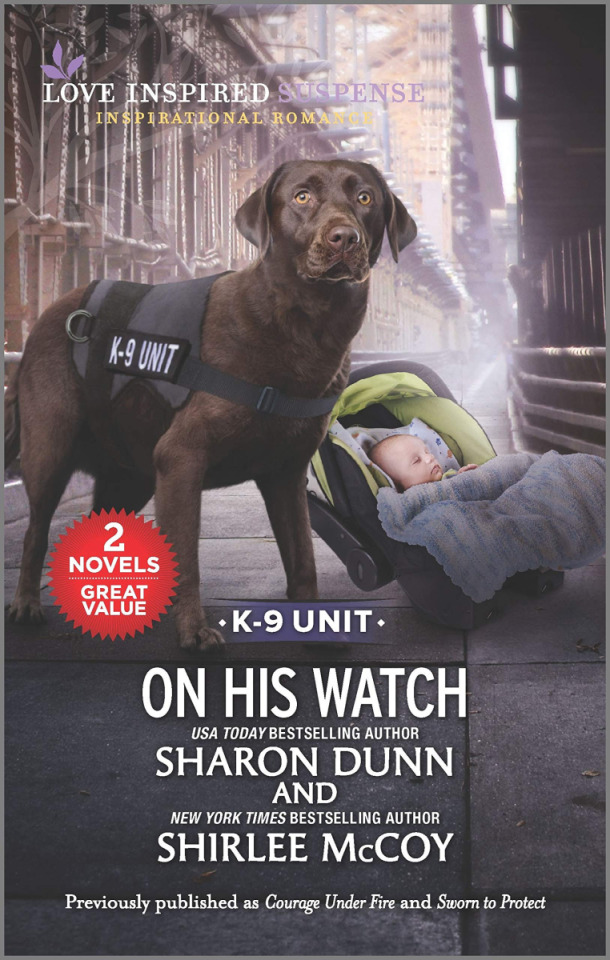
View On WordPress
#2-in-1 book#Amazon#bleed blue#book review#Courage Under fire#crime#crime fiction#danger#deadly#dogs#entertaining#Goodreads#Harlequin#Harlequin Books#hope#Intense#intrigue#k9#love#Love Inspired Suspense#Mayhem#murder#must read#mystery#On His Watch#Police#recommended#romance#serial killer#Sharon Dunn
1 note
·
View note
Text
Matt Damon's interview w/ Vanity Fair (December 1997)
Meet Matt Damon
Three of Hollywood’s top directors have decided that 27-year-old Harvard dropout Matt Damon is a star: Francis Ford Coppola gave him the lead in the latest Grisham adaptation, The Rainmaker, Steven Spielberg cast him in the title role in Saving Private Ryan, and Gus Van Sant directed him in Good Will Hunting, which the actor co-wrote. But, David Kamp discovers. Matt Damon himself is not so sure.
By David Kamp
-
This is how it works: a script is first sent to Chris O’Donnell and Leonardo DiCaprio. They pass. Then the secondtier actors reconvene, exchange familiar nods, and audition for the role that they hope will elevate them from their current station. Usually this role isn’t even any good, merely a preen-and-shout exercise in an expensively produced Hollywood infliction. But the actor who secures the part is assured offers and choices, while the also-rans are forced to scratch around for other work: made-for-cable movies, TV pilots, independent films about small-town white ethnics who wear their shirts untucked and say things like “Cut the shit, Frankie!”
Matt Damon was one of these also-rans, a scrubbed young kid with an Andover face who played schoolboys and soldiers in movies that were O.K. but never quite took. He was in School Ties, in which Brendan Fraser played a Jewish football recruit at an elite New England prep school, and Courage Under Fire, the Denzel Washington drama about the Gulf War.
By now, given the circumstances that bring us all together here, you’ve surmised that Damon is no longer an also-ran, and that something wonderful has happened to him. What happened was that he became the beneficiary of Francis Ford Coppola’s whim to cast an unknown as the lead in The Rainmaker, the latest film adaptation of a John Grisham book. On top of this, Damon stars as a character named Will Hunting in a movie entitled Good Will Hunting, Gus Van Sant’s first picture since To Die For, and plays Private Ryan in Saving Private Ryan, Steven Spielberg’s forthcoming World War II epic. So Matt Damon is suddenly big news, a star in the making, Hollywood’s face of tomorrow, etc., etc. There is “buzz” about him, and it’s my duty to observe that his career has “caught fire,” that he is “hot.” People who work in entertainment are already slurring his name nonchalantly, “M’daymun,” as if they’ve said it a million times and are exhausted by the sheer burden of advance-word knowingness. Matt Damon. M’daymun. Matthew McConaughDamon. He’s probably a wanker. Let’s find out.
‘Oh, hey, man, how you doin’? . . . Naw, I’m just here watching the game with the guy from Vanity [belch] Fair. . . . Yeah, look, I promise I’ll reread it, but if you want an answer now, I’m telling you probably not, because I read this script on the plane that blew me away, and it’s supposed to go at the same time as yours. It’s about a compulsive gambler. It’s written by a guy who is a compulsive gambler, I think. . . . No, so I think probably not, but look, this is for just this film, O.K.? Let’s keep talking for the future, O.K., man? ’Cause I’d like to work with you.”
He hangs up, dumbfounded. “I can’t believe I’m in a position where I have to turn down work. This has never happened,” he says. He’s of compact physique, with broad shoulders, sharp features, and short, mussed hair—he looks like an early Heisman winner.
“When did it start happening?” I ask.
“Just this past weekend,” Damon says. He is only recently back from England, where Saving Private Ryan is being filmed. We are drinking beer and watching football, and, appropriately, there is an air of beer-commercial wish fulfillment afoot, the kind of deal where two knuckleheads in a dorm room slam down their brewskis on top of the console and are magically transported poolside, where butlers and multiple facsimiles of Jayne Mansfield attend to them. Only it’s not nearly that decadent—we are simply luxuriating in a fancy hotel room in New York City on the dime of Miramax, which is releasing Good Will Hunting. Knucklehead Damon is not blasé about his four-star accommodations, self-consciously ordering “overpriced room-service food that I would never pay for myself” and reveling in the junkiest stuff in the mini-bar—the whole jar of cashews, the entire box of Lindt chocolate squares.
Knucklehead No. 2 is Ben Affleck, Damon’s best friend since their high-school days in Cambridge, Massachusetts, and the star of the recent, well-received independent films Chasing Amy and Going All the Way. Affleck is also in Good Will Hunting, playing, in fact, Will Hunting’s best friend. He joins us in Damon’s room, settles in with a beer, and trades stories with his buddy about the day’s big experience: getting fitted for their first-ever complimentary Movie Actor suits. They are attending a function the following evening. “The Gotham Awards? The Gotham . . . Independent Film . . . something?” says Damon. “I don’t know what it is, but they’re giving Harvey and Bob Weinstein some kind of award and we’re being brought along as sort of, you know, Miramax mascots.” The free suits are part of the deal.
Affleck has been to the V.I.P. showroom of Emporio Armani, where he was surprised to encounter a locked glass door with a receptionist behind it who at first wouldn’t let him in. “She motioned for me to pick up this phone on the wall to tell her who I was,” he says. “They’re afraid of Cunanan copycats—that’s my theory.”
“I went to Calvin Klein,” says Damon. “They tried all these things on me and said I looked very ‘fash.’ They promised me that I’ll look ‘fash.’”
The conversants are wearing jeans and dorky shoes—not so much bad style as pre-style: Hollywood taste hasn’t imposed itself on them yet, and their clothes still look mother-bought. They’re new at this, and it’s endearing. You come in prepared for the worst, a Stephen Dorff situation, wherein the hyped kid in the hotel room is sulky and has an off-duty goatee and smells of Gauloises and sits with such an extreme slump that his head is at armrest level and his groin points out at you. It’s nothing like that. These boys are nice knuckleheads.
Good Will Hunting is proof that Damon and Affleck are also intelligent knuckleheads—not an oxymoron, but an apt way to describe a 27-year-old and a 25-year-old who are by all appearances regular guys (neither emits imaginary Keith Haring rays of star quality, as Matthew McConaughey does), and who happen to have written the screenplay for the film in which they star. Yes, they are writer-actors, an uncommon skill combo among filmdom polymaths, and Good Will Hunting—the first thing they have ever written—is now a Gus Van Sant movie.
Will Hunting, Damon’s character, is a troublemaking Irish-American kid from South Boston who is discovered to be a math prodigy. An awed M.I.T. professor (Stellan Skarsgård) wants to take Will under his wing. He gets his chance when Will, on the brink of being jailed for his latest criminal offense, is sprung by the judge on the condition that the professor supervise him and enlist a psychotherapist to set the boy straight. Will resists the touchy-feelyisms of various therapists, until he meets his match in Dr. Sean Maguire (Robin Williams), himself a product of South Boston. This kid, you see, he’s . . . goodwill hunting.
It’s strangely gentle territory for a serial subversive like Van Sant, whose previous films are rife with casual criminality and sexual deviance. “I haven’t really had anyone I’ve shown it to not like the film, which is really unusual for me,” the director says. “I guess that before, I felt that portraying something out of the mainstream was a powerful way of telling a story. But this time the story itself was enough.”
Good Will Hunting is an engaging, comfortably inhabited small movie. That anyone has even bothered to make a film about two of Boston’s prominent milieus— its academic community and its most famously insular neighborhood—is gratifying enough, but Damon and Affleck have transcended the homeboy-homage genre of indie film that has given us Trees Lounge and Palookaville. The screenplay’s realistic handling of townie-student resentments is buttressed by the time Damon spent at Harvard; originally a member of the class of ’92, he remains two semesters short of graduating. As actors, Damon and Affleck avoid vanity shtick, and the cast responds in kind—particularly Williams, soothing and bearded as he was in Awakenings, and Minnie Driver, who plays Damon’s love interest and has since become his real-life girlfriend.
“To me it was just an extraordinary script,” says Williams. “It was quite shocking when I met Matt and Ben and saw how young they were—I was like ‘May I see some ID?’”
The Rainmaker I can’t tell you about with any authority, because it wasn’t finished at the time of this writing. But I can tell you what Mickey Rourke has told me. Mickey’s in The Rainmaker—mark my words, Mickey’s back—and he says, “Matt worked his ass off. Matt walked the walk. And Francis showed a lot of love on the set. Francis is good with young kids.”
It’s not all leather trousers and kissing Bridget Hall, being a boy actor. The road to The Rainmaker was paved with near misses and self-worth crises. “I’d have taken Robin,” Damon says, alluding to Batman Forever. “Hell, I auditioned for it. When they first offered it to Chris O’Donnell he wanted more money, so they had auditions and I did a screen test for Joel Schumacher. Primal Fear—you know the Edward Norton role? It more or less came down to him and me, and he pretty much put a smokin’ on me. To Die For I lost nearly 20 pounds to audition for, but Wock got it.” (“Wock” is his friend Joaquin Phoenix.)
Damon’s first role of consequence was in School Ties, in 1992. A poor but not altogether worthless cousin of Dead Poets Society, the movie had a young cast that also included Brendan Fraser, Chris O’Donnell, Randall Batinkoff, Cole Hauser, and Affleck. Damon was effectively first among the featured performers, playing a moneyed “legacy” student whose anti-Semitism and resentment of Fraser’s character bring about the film’s climax. But he was not to be the first of the gang called up from the minors.
“Scent of a Woman happened right during School Ties. The whole cast went down to audition for it,” says Damon. “Chris O’Donnell was a business major at Boston College, and he’s a very savvy businessman. So the way I found out about the part is, I’m checking in with my agent, to see if anything good has come in, and my agent says, ‘Here’s one with a young role, and . . . Oh my God, it’s got Al Pacino in it!’ So I go up to Chris and say, ‘Have you heard about this movie?’ and he says [curtly] ‘Yeah.’ So I say, ‘Do you have the script?’ ‘Yeah.’ ‘Can I see it?’ ‘No—I kinda need it.’ Chris wouldn’t give it to anybody. Later, Ben, me, Randall, Brendan, Anthony Rapp—we’re all commiserating about our auditions, talking about how they didn’t go well. Except for Chris. Chris used to play things close to the vest. We asked him how his audition went, and he just said [highpitched, Hibernian singsong], ‘Ohhh, it was all right.’ And we were like ‘Dude! Just tell us how it went!’ And he would say [singsong again], ‘Ohhh, I don’t know.’”
While O’Donnell went on to become Hollywood’s literal and figurative Boy Wonder, Damon and Affleck found themselves in a wilderness of spotty work and tenuous finances, sharing a two-bedroom apartment on Curson Avenue in L.A. with a third friend from Cambridge. Affleck and two other School Ties veterans, Hauser and Rapp, found jobs playing oily adolescents in Dazed and Confused, Richard Linklater’s winning evocation of the mid-70s. As a result there developed an overlapping School Ties—Dazed and Confused coterie of underemployed young actors: Damon, Affleck, Hauser, Rory Cochrane (the latter film’s lovable stoner), and Matthew McConaughey, dead-on as Dazed and Confused’s over-age, breezily malevolent parasite on the town’s high-school scene.
“When Matthew got A Time to Kill, we all went nuts,” says Damon. “It was such a feeling of vindication—that one of our peer group, someone not on the A-list, got the part.”
Damon’s ticket out of obscurity was last year’s Courage Under Fire, in which he delivered an attention-grabbing performance as a soldier who witnesses something horrible in Kuwait and, thus traumatized, becomes a heroin addict. Damon lost 40 pounds for that role and became, literally, anorectic. “I was under 2 percent body fat,” he says. “I remember seeing Lou Diamond Phillips”—whose boxing-ring scenes in the movie reveal a perfectly sculpted torso—“and thinking, God, if I looked like that I wouldn’t take my shirt off. I thought he looked fat!” He produces an unsettling snapshot of himself from this era, smoking a cigarette and holding up a packet of ExLax. He looks like Chet Baker about to die.
Health be damned, Damon believes that the extreme measures for Courage Under Fire were well worth it. “It was a business decision,” he says. “I thought, Nobody will take this role, because it’s too small. If I go out of my way to make something of this role . . .” At this point he cites the punchdrunk performance of Benicio Del Toro in The Usual Suspects. “He’s killed early into the movie and he probably has, like, nine lines. But I found it the most memorable performance of 1995. The guy just goes out and thinks, No one’s gonna understand what I’m doing except for me, but I’m a fuckin’ genius. For me, I was sick of reading scripts that Chris O’Donnell had passed on, and I was looking for something to set me apart: ‘Look what I’ll do, I’ll kill myself!’ Directors took note of it.”
Indeed, Damon’s performance impressed Coppola enough that he cast him in The Rainmaker. The out-of-nowhere notoriety this accorded Damon prodded Miramax to push Good Will Hunting into production. And when Good Will Hunting was shooting on location in Boston last spring, Williams invited Damon along to visit Spielberg, who was in town to film scenes for his slave-ship-revolt movie, Amistad. “I’d auditioned by tape for Saving Private Ryan, but Steven thought I still looked like I did in Courage Under Fire,” Damon says. “So when he actually saw me, he saw that I didn’t look that way anymore, and that’s what made the difference.”
Inevitably the topic of nascent stardom arises and, equally inevitably, Damon demurs. It’s a “lofty assumption,” he says, that the Coppola—Van Sant—Spielberg trifecta will make him a star; it could all blow over in a year’s time. “I won’t be Matthew McConaughey,” he says. “I’m not as good-looking as him. I’m certainly never going to be anyone’s sex symbol.”
Here the conversation takes a turn for the meta-, becoming all about the impact of this article and the photos that will accompany it, and how celebrity is lovely if it helps you get better work, but is also a tricky bugaboo larded with unseemly implications. Ed Harris, Damon concludes. That’s the kind of life he’d like, being a good actor like Ed Harris, well regarded but not overpaid or stalked by anyone. Damon makes no attempt to veil his disdain for Hollywood, proclaiming himself “an East Coast person” who will one day settle down in his native Boston area; for now, he has no fixed address and lives in Cole Hauser’s apartment near L.A.’s Griffith Park.
You could argue that Damon is being pre-emptive, just in case things don’t work out these next few months. But his conviction strikes me as genuine. He can’t fathom, for example, the notion of eightfigure salaries. “Chris O’Donnell made $10 million last year. [Again, more deliberately] Chris . . . O’Donnell . . . made 10 . . . million . . . dollars last year. Now, if I made $10 million last year, I would not be sitting here with you. No offense. Unless you and I were friends and you wanted to hang out with me and help me spend my $10 million. Shit, man, give me five million bucks once—that’s $500,000 a year for the rest of your life if you invest it. I can’t spend that much money. Not the way I live.” (For the record, Damon says that his average take-home pay for The Rainmaker, Good Will Hunting, and Saving Private Ryan was “significantly under half a million per picture.”)
Damon’s upbringing was progressiveliberal even by Cambridge standards. As a child, he was taken on tours of South Boston by his mother’s longtime boyfriend, who had driven one of the hated buses that delivered black kids to white schools in Southie in the mid-70s. When Damon was 10, he, his mother, and his older brother, Kyle, moved into an experimental cooperative house. “About six families bought a broken-down house in Central Square and rebuilt it,” he says. “It was governed by a shared philosophy that housing is a basic human right. Every week there was the three-hour community meeting, and Sundays were workdays. My mom put little masks on me and my brother, gave us goggles and crowbars, and we demo’d the walls.”
Damon positively beams when he speaks of his mother. When I ask if I can give her a call, he agrees and advises me that she is “nice, you’ll like her, she’s really touchyfeely”—which I later surmise to be his way of saying I love her dearly, but her value system skews somewhat to the left of mine.
Damon’s mother, Nancy Carlsson-Paige, is a professor of early-childhood education at Lesley College in Cambridge, and she forthrightly discusses her discomfort with her son’s impending celebrity. “I’m not happy about it, particularly,” she says. “What happens in a consumer society is that people become objects of attention in a way that doesn’t seem healthy to society. I’m happy that Matt is happy in his work, but I’m not convinced he has to be on the cover of a magazine about it. It’s a little hard for me to accept. It’s all so out of the ordinary that I worry he might not grow as I want him to.” For an unreconstructed leftist whose son has pledged allegiance to the Entertainment State, these difficult quandaries arise frequently. “It was hard for me to go to the set of Courage Under Fire,” she continues. “I was deeply against the Gulf War, and I didn’t know how the film was going to pan out politically.”
So it’s settled then. We have come here to celebrate the launch of Matt Damon, actor, not Matt Damon, celebrity. We shall not torment him with shallow appraisals of his love life. We shall not murmur that he looks kinda fat or suspiciously thin in that photo we saw in People magazine’s “Star Tracks” section. We shall leave him alone to develop his craft and indulge him in his use of that word, craft. We shall take into account that he is still learning.
“I think Marlon Brando has done more to destroy this generation of actors,” he says, referring to his own generation, “because, with the whole marble-mouth thing— the I-don’t-give-a-fuck mentality—what people overlook is that when the dude was my age he was the hardest-working man in show business. He was onstage, he was busting his ass with Stella Adler, he was obsessed with acting. When people say, ‘I just want to be fat and live in Fiji and have everyone tell me I’m a genius,’ they’re not looking at what it actually takes to get there.”
#matt damon#ben affleck#chris o'donnell#nancy paige#school ties#courage under fire#good will hunting#the rainmaker#saving private ryan#on fame#on acting#on politics#on mental health#on appearance#interview#variety fair#1997#originals
2 notes
·
View notes
Text
Courage Under Fire
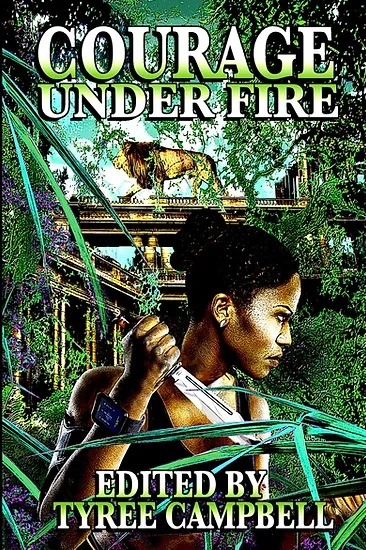
Wonderful news! I just learned that “Courage Under Fire” released by Hiraeth Books, (the kind folks who published a couple of my other stories) has been published and it features my historical fantasy, “Fearfully and Wonderfully Made.” If you’re interested in buying a copy, you can do so here.
I intend to do a Fun Facts post in a few days.
I hope you’re all having a good Monday.
Until next time!
#historical fiction#fantasy fiction#fearfully and wonderfully made#courage under fire#hiraeth books#short stories
1 note
·
View note
Text
Unveiling the Human Condition: A Review of "Grapes of Wrath" by Boyd Cable
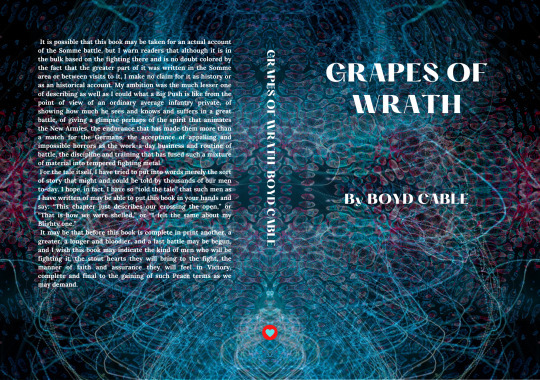
Boyd Cable's "Grapes of Wrath" is a poignant exploration of the human spirit amidst the turmoil of war. Set against the backdrop of World War I, Cable's novel follows the journey of a group of soldiers as they navigate the harrowing realities of combat and confront the profound moral dilemmas it presents. Through vivid prose and compelling storytelling, Cable captures the essence of the soldier's experience, from the camaraderie of the trenches to the devastation of battle.
At the heart of "Grapes of Wrath" is Cable's exploration of the psychological and emotional toll of war on the individual. Through the eyes of his protagonist, Cable delves into the complexities of fear, courage, and resilience in the face of unimaginable adversity. The novel offers a raw and unflinching portrayal of the physical and mental challenges that soldiers endure, shedding light on the often overlooked human cost of conflict.
One of the most striking aspects of Cable's work is its focus on the humanity that persists even in the darkest of times. Despite the horrors of war, Cable's characters retain their capacity for compassion, empathy, and love, serving as a powerful reminder of the resilience of the human spirit. Through moments of kindness and camaraderie amidst the chaos of battle, Cable highlights the enduring bonds of friendship and solidarity that sustain soldiers in their darkest hours.
In addition to its exploration of the individual experience of war, "Grapes of Wrath" also offers a broader commentary on the nature of conflict and its impact on society as a whole. Cable's vivid descriptions of the landscape of war and its aftermath paint a vivid picture of the devastation wrought by violence, while his portrayal of the social and political forces at play provides insight into the broader context in which war unfolds.
Overall, "Grapes of Wrath" is a powerful and thought-provoking novel that offers a nuanced portrayal of the human experience in times of war. Through its compelling characters, vivid imagery, and profound insights, Cable's work resonates with readers long after the final page is turned, serving as a testament to the enduring power of literature to illuminate the complexities of the human condition.
Boyd Cable's "Grapes of Wrath" is available in Amazon in paperback 15.99$ and hardcover 21.99$ editions.
Number of pages: 182
Language: English
Rating: 8/10
Link of the book!
Review By: King's Cat
#Grapes of Wrath#Boyd Cable#World War I novel#Trench warfare#Soldier's journey#Battlefront camaraderie#Psychological impact#Emotional resilience#Human spirit#Courage under fire#Moral dilemmas#War's toll#Devastation of conflict#Sacrifice and bravery#Individual experiences#Comradeship#Surviving the trenches#Psychological trauma#Humanity in war#Realities of combat#Heroism and sacrifice#Brotherhood in arms#Frontline camaraderie#Shell shock#Post-war trauma#Battlefront friendships#Emotional struggles#Psychological resilience#War's aftermath#Impact on soldiers
0 notes
Text
Unveiling the Human Condition: A Review of "Grapes of Wrath" by Boyd Cable
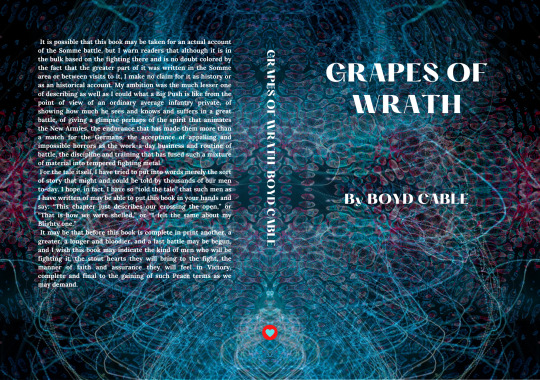
Boyd Cable's "Grapes of Wrath" is a poignant exploration of the human spirit amidst the turmoil of war. Set against the backdrop of World War I, Cable's novel follows the journey of a group of soldiers as they navigate the harrowing realities of combat and confront the profound moral dilemmas it presents. Through vivid prose and compelling storytelling, Cable captures the essence of the soldier's experience, from the camaraderie of the trenches to the devastation of battle.
At the heart of "Grapes of Wrath" is Cable's exploration of the psychological and emotional toll of war on the individual. Through the eyes of his protagonist, Cable delves into the complexities of fear, courage, and resilience in the face of unimaginable adversity. The novel offers a raw and unflinching portrayal of the physical and mental challenges that soldiers endure, shedding light on the often overlooked human cost of conflict.
One of the most striking aspects of Cable's work is its focus on the humanity that persists even in the darkest of times. Despite the horrors of war, Cable's characters retain their capacity for compassion, empathy, and love, serving as a powerful reminder of the resilience of the human spirit. Through moments of kindness and camaraderie amidst the chaos of battle, Cable highlights the enduring bonds of friendship and solidarity that sustain soldiers in their darkest hours.
In addition to its exploration of the individual experience of war, "Grapes of Wrath" also offers a broader commentary on the nature of conflict and its impact on society as a whole. Cable's vivid descriptions of the landscape of war and its aftermath paint a vivid picture of the devastation wrought by violence, while his portrayal of the social and political forces at play provides insight into the broader context in which war unfolds.
Overall, "Grapes of Wrath" is a powerful and thought-provoking novel that offers a nuanced portrayal of the human experience in times of war. Through its compelling characters, vivid imagery, and profound insights, Cable's work resonates with readers long after the final page is turned, serving as a testament to the enduring power of literature to illuminate the complexities of the human condition.
Boyd Cable's "Grapes of Wrath" is available in Amazon in paperback 15.99$ and hardcover 21.99$ editions.
Number of pages: 182
Language: English
Rating: 8/10
Link of the book!
Review By: King's Cat
#Grapes of Wrath#Boyd Cable#World War I novel#Trench warfare#Soldier's journey#Battlefront camaraderie#Psychological impact#Emotional resilience#Human spirit#Courage under fire#Moral dilemmas#War's toll#Devastation of conflict#Sacrifice and bravery#Individual experiences#Comradeship#Surviving the trenches#Psychological trauma#Humanity in war#Realities of combat#Heroism and sacrifice#Brotherhood in arms#Frontline camaraderie#Shell shock#Post-war trauma#Battlefront friendships#Emotional struggles#Psychological resilience#War's aftermath#Impact on soldiers
1 note
·
View note
Text

Courage under fire (1996)
0 notes
Text
I really want to include the whole “She was coming, the train was coming, so was I.” in Courage Under Fire
8 notes
·
View notes